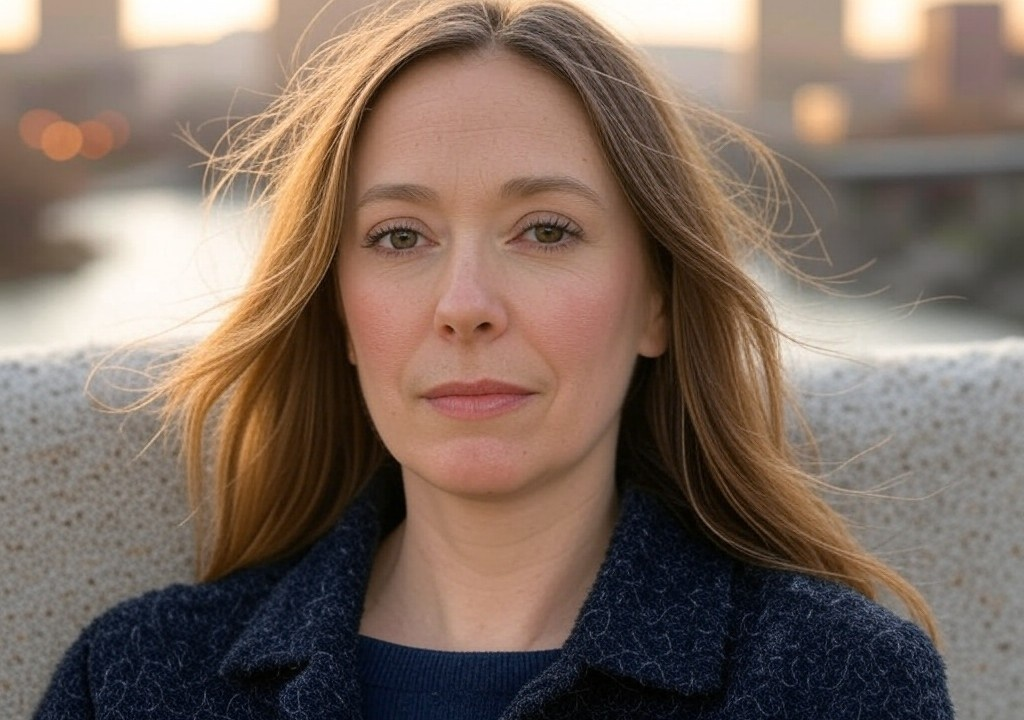They say that one person can change your life, and it always sounds like something out of a Hallmark card, doesn’t it? The line wraps itself in a feel-good optimism that seems more suited to a viral TikTok workout or a rom-com montage than day-to-day reality. But here’s the thing: it can happen. That one person—the mentor, the friend, or even the stranger who surfaces briefly but sticks with you forever—can shift the ground beneath your feet in a way that feels both wildly unexpected and entirely meant to be. I know this because it happened to me.
So, let me tell you about the person who saw me.
The Accidental Meeting That (Sort of) Changed Everything
The day I met Emily Carmichael, I was 25 and chasing my tail as a small-town reporter. Back then, my office desk at The Idaho Statesman felt like a hamster wheel: endless, unglamorous assignments on zoning board hearings and profiles of local entrepreneurs whose biggest achievement was inventing a new IPA flavor called “Potato Passion.” It wasn’t bad work—I wasn’t digging trenches in the rain—but something about my life felt blurred at the edges. Like I was swimming in the shallow end while looking longingly at the bold divers cannonballing into the deep.
Emily wasn’t supposed to take any interest in me. She was a visiting editor, flown in from New York while on sabbatical to guest-lecture at Boise State. She had that buzz of Big City Confidence™: oversized glasses, tailored navy blazer, and a way of walking into a room as though she already knew it owed her respect. Frankly, she intimidated me to the point of mumbling incoherence.
We met at a post-panel discussion mixer, the kind that promises “light refreshments” and provides exactly two Costco cheese platters. A mutual acquaintance had dragged me over to meet Emily, pushing me forward with the enthusiasm of someone letting their Labrador off-leash. When she asked about my work, I gave some garbled response about zoning laws, ready to pull the rip cord and escape.
But something stopped her—in the way you stop flicking through Netflix when you find a title you weren’t looking for but can’t stop reading about. Emily froze, looked at me for two Mississippi-long seconds, and said it:
“You’re a storyteller, aren’t you?”
Recognizing Potential (Even When You Don’t)
Let me pause here to point out how bizarre this moment was. At that time, my “storytelling” amounted to writing slightly snarky ledes for regional stories involving farmer’s markets and bike lane debates. I didn’t feel like someone with the narrative drive of a Nora Ephron or the literary swagger of Joan Didion. Mostly, I just felt like a fraud in cardigans from Kohl’s.
But Emily’s question wasn’t posed as a compliment—it was almost an accusation, the sort of remark that makes your skin prickle because it sounds more like fact than flattery. She said it with all the confidence of a football coach sizing up a player who doesn’t quite believe they deserve to be on the field.
“I am,” I nodded, hearing the words leave my mouth like I had been hypnotized.
“Well,” she said briskly, “you should write like it. Boise deserves sharper storytelling.”
Somehow, in that one sentence, Emily did what no amount of well-meaning encouragement ever could: she lit a fire of urgency under my feet.
It wasn’t just that she said I had potential; you hear versions of that from forgiving aunts at Thanksgiving dinner or overly kind college professors. It’s how she said it. Like spotting a two-dollar yard sale record that turns out to be a rare vinyl worth hundreds, Emily made me believe she saw value in me I hadn’t even considered.
What Happens After You’re Seen
Here’s the thing about being seen through someone else’s eyes: it’s like being handed a pair of upgraded glasses. Suddenly you see yourself—and the world around you—differently. Emily and I only met a few more times before she left town, but her words burrowed their way into my psyche.
I had been circling this vague curiosity about creative nonfiction, about doing work that scratched beneath the surface of stories and unearthed a richer vein. But what if I meant it? What if I treated my writing—as Emily so bluntly suggested—like an art form worthy of serious attention?
So I made some changes. I pitched grittier feature stories to my editor, asking for a long leash on deadlines to dive deeper. I attended local readings at tiny downtown coffee shops, sweating nervously in my seat while listening to punk kids with septum rings share mesmerically raw poetry. Eventually, I sent off an essay to an anthology submission (It was titled “Leaving Potato Country,” because—subtlety). And when it got accepted, I knew the original rejection letter was floating around the office printer because I couldn’t stop refreshing my email long enough to focus on anything else.
I had seen myself as one kind of writer: practical, safe, clear-headed about the limits of talent. Emily saw a different version. And by leaning into her vision—even cautiously, one sentence at a time—I started to find it, too.
Who Sees You?
Sometimes I wonder if Emily would even remember me. It feels like we spent barely 20 minutes talking in total, yet her pinpoint recognition of potential shifted the course of my career in the way a single wind gust can redirect a path through sand dunes. Life is peppered with those almost-mystical intersections: the best friend who calls out the blind spot in your dating years, the professor who hands back your essay scrawled with “You could go far,” or the stranger in an elevator who says, “That’s actually a great idea” and makes you wonder if it is.
So what do you do with that moment—when someone sees something in you you’re too blurry-eyed to see yourself? Here’s what worked for me:
-
Trust that they’re not bluffing. People like Emily don’t hand out unwarranted kudos. If they spot something, there’s a chance they’re right—even if your inner critic insists otherwise.
-
Rethink your limits. You don’t need to overhaul your life overnight. Take one small step toward the thing they see in you: read a book, join a community, dare to write the first draft or hit “send.”
-
Remember: They’re not superhuman. It’s easy to deify a mentor figure, but they’re just people with a knack for understanding potential. Take their insight, run with it, and understand that what you do next is your story to own.
Keep Looking. Keep Listening.
The person who sees you might not show up in an oversized blazer or at a networking mixer. It might be a coach, a boss, or a partner who spots something you can’t yet believe about yourself. What matters most is that you let the mirror they hold up linger long enough to take in the reflection.
And if no Emily of your own has appeared yet? Here’s a secret: Every day is a chance to look in the mirror for yourself. To see—not flashlight-bright, but softly, steadily—the flickering potential in who you are.
The great thing about being human is that nobody gets through life alone. Somebody will see you—eventually and profoundly. And when they do, don’t hesitate. Lean into the light they offer and trust your ability to grow into the shape they outline.




















